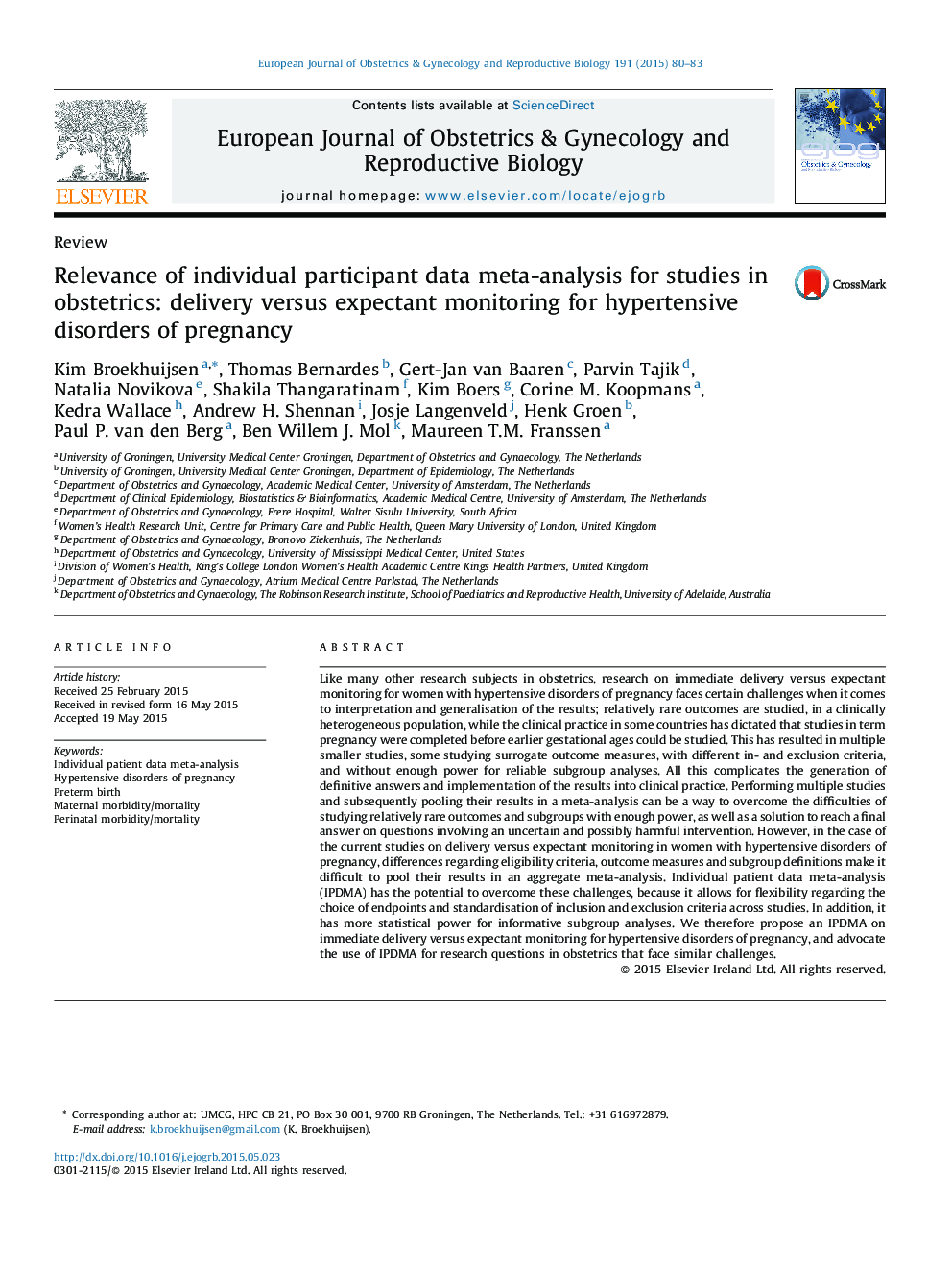| Article ID | Journal | Published Year | Pages | File Type |
|---|---|---|---|---|
| 3919516 | European Journal of Obstetrics & Gynecology and Reproductive Biology | 2015 | 4 Pages |
Like many other research subjects in obstetrics, research on immediate delivery versus expectant monitoring for women with hypertensive disorders of pregnancy faces certain challenges when it comes to interpretation and generalisation of the results; relatively rare outcomes are studied, in a clinically heterogeneous population, while the clinical practice in some countries has dictated that studies in term pregnancy were completed before earlier gestational ages could be studied. This has resulted in multiple smaller studies, some studying surrogate outcome measures, with different in- and exclusion criteria, and without enough power for reliable subgroup analyses. All this complicates the generation of definitive answers and implementation of the results into clinical practice. Performing multiple studies and subsequently pooling their results in a meta-analysis can be a way to overcome the difficulties of studying relatively rare outcomes and subgroups with enough power, as well as a solution to reach a final answer on questions involving an uncertain and possibly harmful intervention. However, in the case of the current studies on delivery versus expectant monitoring in women with hypertensive disorders of pregnancy, differences regarding eligibility criteria, outcome measures and subgroup definitions make it difficult to pool their results in an aggregate meta-analysis. Individual patient data meta-analysis (IPDMA) has the potential to overcome these challenges, because it allows for flexibility regarding the choice of endpoints and standardisation of inclusion and exclusion criteria across studies. In addition, it has more statistical power for informative subgroup analyses. We therefore propose an IPDMA on immediate delivery versus expectant monitoring for hypertensive disorders of pregnancy, and advocate the use of IPDMA for research questions in obstetrics that face similar challenges.
